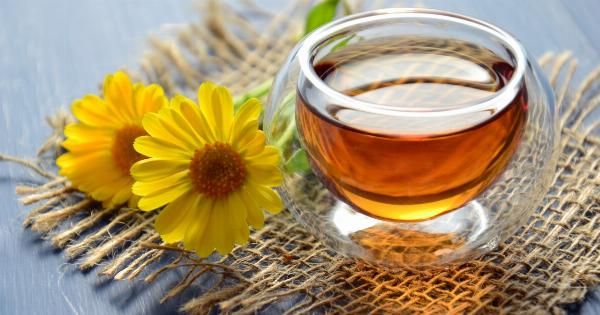Chronic Kidney Disease (CKD) is a condition where the kidneys gradually lose their function over time. It is a serious condition that can lead to kidney failure if left untreated.
While CKD is not always preventable, adopting a healthy diet can help to delay the progression of the disease and reduce the risk of complications. In this article, we will explore a kidney-friendly diet that can aid in maintaining the health of your kidneys.
Understanding Chronic Kidney Disease
Before diving into the details of a kidney-friendly diet, it’s important to understand the basics of Chronic Kidney Disease.
The kidneys play a crucial role in filtering waste products and excess fluid from the blood, and they also help regulate blood pressure and produce hormones that promote the production of red blood cells. When the kidneys are damaged, they are unable to perform these functions effectively, leading to a buildup of waste products in the body and other complications.
CKD is commonly caused by conditions like diabetes, high blood pressure, and certain genetic disorders. It can also be a result of long-term use of certain medications, kidney infections, or urinary tract blockages.
The symptoms of CKD may not be noticeable in the early stages, but as the disease progresses, individuals may experience fatigue, swelling in the feet and ankles, changes in urination patterns, and difficulty concentrating.
The Importance of a Kidney-Friendly Diet
A kidney-friendly diet aims to reduce the strain on the kidneys by minimizing the intake of substances that can further damage them. It also focuses on maintaining a balanced diet to provide essential nutrients without overloading the kidneys.
The key components of a kidney-friendly diet include:.
1. Limiting Sodium Intake
High sodium levels can increase blood pressure and cause fluid retention, putting extra strain on the kidneys. It is important to limit sodium intake by avoiding processed foods, canned soups or vegetables, and condiments like soy sauce.
Opting for fresh ingredients and using herbs and spices for flavoring can help reduce sodium consumption.
2. Incorporating High-Quality Proteins
Protein is essential for overall health, but excessive consumption can put stress on the kidneys.
Instead of consuming large amounts of low-quality protein sources like processed meats, it is recommended to opt for lean meats, fish, eggs, or plant-based proteins like beans and lentils. Consultation with a healthcare professional or a registered dietitian can help determine individual protein requirements.
3. Watching Potassium Levels
Healthy kidneys maintain the balance of potassium in the body. However, for individuals with CKD, potassium levels can rise to dangerous levels, leading to irregular heart rhythms.
Foods high in potassium, such as bananas, oranges, tomatoes, and potatoes, should be consumed in moderation. Boiling or soaking these foods before cooking can help reduce their potassium content.
4. Managing Phosphorus Intake
Elevated phosphorus levels can result in weakened bones, calcification of blood vessels, and heart complications. Foods like dairy products, nuts, seeds, and cola drinks are high in phosphorus and should be limited.
It is advisable to choose low-phosphorus alternatives and to take phosphate binders if recommended by a healthcare professional.
5. Controlling Fluid Intake
For individuals with CKD, impaired kidney function may lead to fluid retention and swelling.
It is essential to manage fluid intake by monitoring urine output, body weight, and consulting with a healthcare professional to determine an appropriate daily fluid limit. Restricting high-fluid foods like soups, ice creams, and juicy fruits can also help maintain fluid balance.
6. Monitoring Calcium Levels
CKD can disrupt calcium metabolism, leading to weakened bones and an increased risk of fractures. Including calcium-rich foods like dairy products, leafy greens, and fortified foods can help maintain optimal calcium levels.
However, it is necessary to monitor calcium intake closely, especially if taking phosphate binders to avoid excessive calcium levels.
7. Increasing Fiber Intake
A diet rich in fiber can promote regular bowel movements and reduce the risk of constipation, a common issue in individuals with CKD.
Incorporating foods like whole grains, fruits, vegetables, and legumes can provide an adequate amount of fiber while promoting overall digestive health.
8. Moderating Oxalate Foods
Oxalate, a compound found in some foods, can lead to the formation of kidney stones, which can worsen kidney function. Foods with high oxalate levels, such as spinach, rhubarb, beets, and chocolate, should be consumed in moderation.
Cooking or steaming these foods can help reduce their oxalate content.
9. Reducing Intake of Added Sugars
A high intake of added sugars can contribute to weight gain and increase the risk of conditions like diabetes and heart disease, which can further harm the kidneys.
Limiting sugary drinks, candies, baked goods, and processed snacks can help maintain a healthy weight and reduce the strain on the kidneys.
10. Seeking Professional Guidance
While following a kidney-friendly diet is generally beneficial, it is crucial to seek professional guidance, especially in advanced stages of CKD or when on dialysis.
A registered dietitian can help develop an individualized meal plan based on specific needs, medical history, and lifestyle factors.
Conclusion
Adopting a kidney-friendly diet is a proactive step towards maintaining the health of your kidneys and potentially slowing down the progression of Chronic Kidney Disease.
By being mindful of sodium, protein, potassium, phosphorus, fluid, calcium, fiber, oxalate, and sugar intake, individuals with CKD can support their kidney function and reduce the risk of complications. Remember to consult with a healthcare professional or a registered dietitian to create a personalized meal plan that meets your specific needs and to monitor your kidney health regularly.































